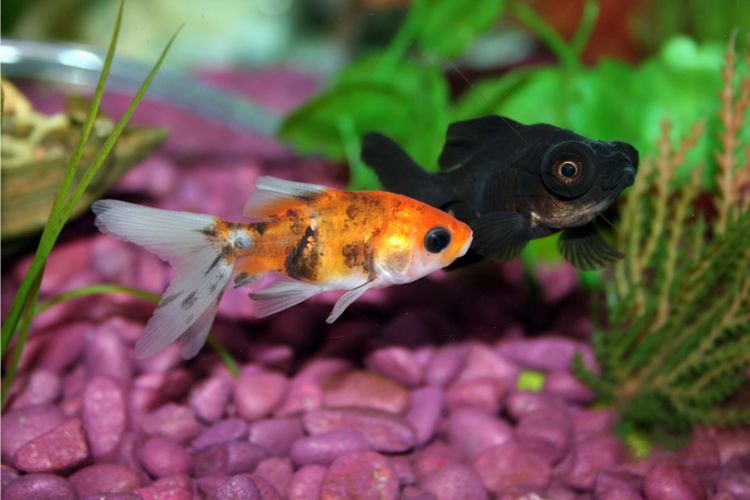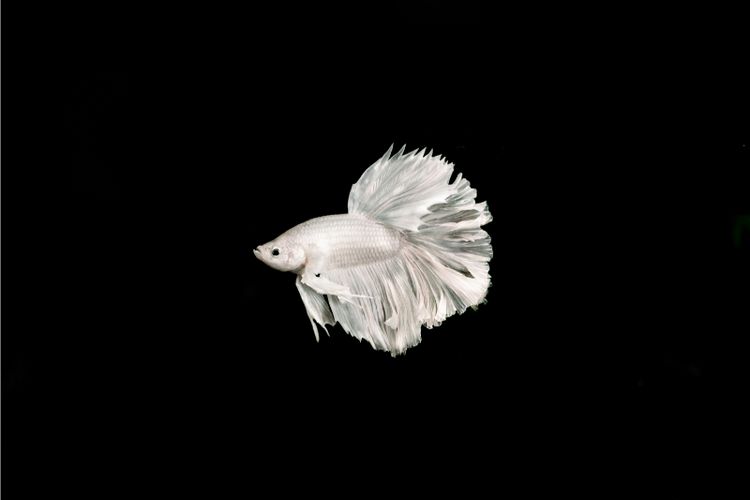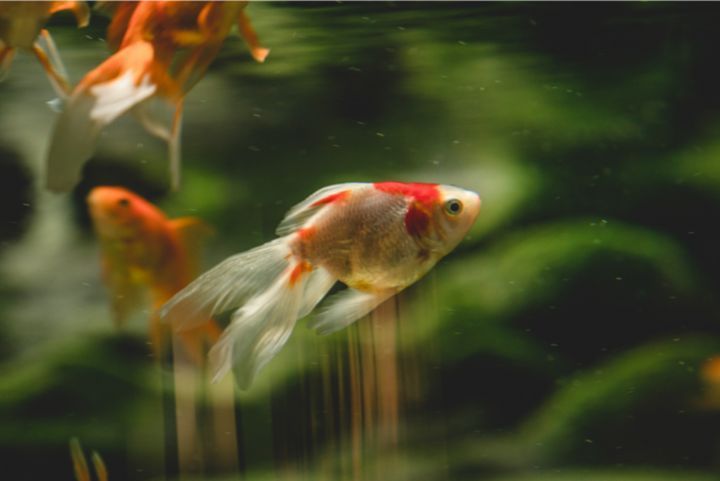Have you noticed that your betta’s eye is swollen? Does it almost appear that their eye is popping out of their head? It sounds like you’re dealing with betta fish popeye.
Popeye is a common problem in betta fish. It’s usually caused by injury or infection. It’s important to know the cause of the popeye so that you can treat it.
Keep reading to find out how to diagnose and treat your betta’s popeye.
What Is Popeye?
Popeye is not one specific disease. Instead, it is a term used to describe any condition that causes a fish’s eye to appear swollen. Often, the popeye presents so badly that it appears the eye is bulging out of the fish’s head.
What Are The Symptoms Of Popeye?
The main problem associated with popeye is the eye bulging out of the head and appearing swollen.
Other symptoms may include:
- A white ring or white splotches around the eye
- Cloudiness
- Eye redness
- Lethargy
- Loss of appetite
What Causes Popeye?
Popeye isn’t always caused by the same thing. Usually, it is a secondary symptom to a larger problem. Of course, you should treat the popeye as it’s very painful and makes it hard for your fish to see. But, you need to get to the bottom of the problem and discover what caused the popeye in the first place.
Injury
The first step in figuring out what’s caused this problem is examining both eyes. If there’s only swelling in one eye, then your fish likely injured their eye. This could have happened due to fighting with tank mates or slicing it on a decoration in the tank.
Bettas are particularly susceptible to injury. They have long, flowy fins that are easily ripped on sharp decorations. You should never keep plastic plants or sharp decorations in your betta tank. These types of decorations are the main culprits for damage to a betta’s eye.
If you don’t have these types of decorations in your tank, then you’ll need to watch your betta as they swim around. See what items they like to get close to to narrow down what might have injured it.
If your betta has tankmates, you’ll also want to watch how your betta interacts with them. Some bettas are feisty and will seek out fights with other fish. Other fish — like barbs or cichlids — aren’t suitable tankmates and will bully your betta.
Remember, you should NEVER house a male betta with any other bettas. You can sometimes keep females in sororities. But, if you have a sorority, watch your bettas to make sure they aren’t becoming aggressive with each other.
If your betta is getting into fights, you’re going to need to separate your betta from the other fish.
Bacterial Or Fungal Infections
Bacterial and fungal infections are also common causes of popeye. If both of your betta’s eyes are swollen, then the popeye is most likely due to an infection.
If your betta is living in a community tank and several fish have popeye, then it’s likely an infection.
You should also look out for other signs of illness. An injured betta will likely continue acting like its normal self. But a sick betta may be lethargic, may have trouble swimming, and may stop eating.
Bacterial and fungal infections are usually caused by a lack of water quality in the tank. Dirty tank water, cold water, or a lack of oxygen can all cause infections.
How Can You Prevent Popeye?

The good news is that popeye is pretty easy to prevent.
Remove Sharp Decorations
To prevent injuries, avoid using sharp decorations that might hurt your fish.
Keep Your Tank Clean
To keep infections at bay, make sure you keep your tank as clean as possible. Bacterial and fungal infections are most often caused by unideal water conditions.
Be sure to do regular water changes with a gravel vacuum to keep your tank clean.
Perform regular water tests to watch your water parameters. Spikes in ammonia, nitrites, and nitrates can cause your fish to become sick.
Keep The Water Warm
Make sure that you keep the water at a temperature that is suitable for your fish. If you’re housing tropical fish, you’ll need a heater with a thermometer. Keep an eye on the thermometer to make sure the water is at the correct temperature. If the water becomes too cold, your fish can become sick.
Make Sure There Is Enough Oxygen
Also, be sure that your aquarium is getting enough oxygen. This usually isn’t a problem for betta fish. They can survive in poorly-oxygenated water. They get most of their oxygen from the surface using their labyrinth organ. Still, if the water is too stagnant, it could cause your betta to become sick.
How Do You Treat Popeye?

You must treat popeye before it’s too late. Not only is it painful, but it makes it hard for your fish to see. If you leave it go for too long, your fish may go blind in that eye. Sometimes, the eye can even rupture.
Popeye Due To Injury
How you treat popeye depends on what caused it in the first place.
You’ll want to move your betta to a hospital tank where it will be alone. If your betta is the only fish in the aquarium, then this isn’t necessary.
You can add API Stress Coat to the tank. It contains Aloe Vera which can reduce your fish’s stress and help with wound healing.
Although your betta’s popeye was only caused by an injury, you should keep a close eye on it. Injuries leave a fish more susceptible to bacterial and fungal infections.
Popeye Due To Infection
You’ll treat infections with an anti-fungal medication or antibiotic. Some good medications include Seachem ParaGuard, Maracyn Oxy, and Seachem Sulfaplex.
Don’t Use Melafix or Pimafix!
You may see some articles advising you to use Melafix or Pimafix to treat your betta’s popeye. But, you shouldn’t use them. They are good tools to use for other fish, but it’s not safe for bettas or any fish with a labyrinth organ.
Melafix and Pimafix are natural products that contain tea tree oil. When your betta comes to the surface to breathe, the oil will coat their labyrinth organ. Many times, this can lead to suffocation and death.
Aquarium Salt For Injury & Infection
Whether the popeye is a result of injury or infection, you should treat the water with aquarium salt. Aquarium salt is wonderful for promoting wound healing. It can reduce inflammation and the chance of infection. It may be enough on its own to help your betta heal.
Aquarium salt is a wonderful tool, but you should use it in a hospital tank when possible. It doesn’t evaporate, so you should only add salt when doing water changes. If you add salt without a water change, too much salt will accumulate, and it can become toxic to your fish.
Also, like any medication, fish can build up a resistance to aquarium salt when used too often. Some aquarists keep their tanks dosed with aquarium salt at all times. We don’t recommend that though. Its effectiveness will wear down over time. Then, if your fish do become sick, you’ll be unable to treat them with aquarium salt.
Epsom Salt Bath
If you don’t want to use aquarium salt, an alternative is Epsom salt. Epsom salt is stronger than aquarium salt, so don’t add it to the tank with your betta. Instead, you’ll do a temporary salt bath.
To do this, add 1 gallon of the tank water to a separate container. Then, add 1 tablespoon of Epsom salt. Make sure that you mix up the salt and that it’s completely dissolved before adding your fish. Then, add your fish to the bath and allow them to swim around for 15-30 minutes.
Be sure to remove your fish from the bath immediately if they seem to become stressed. Some fish may be too sensitive for this process, or you may have accidentally overdosed them.
Conclusion
Bettas are susceptible to injury, and popeye is often caused by injury. But, popeye can also appear because of a bacterial or fungal infection. How you want to treat your betta depends on what’s causing the popeye.
No matter the cause, aquarium salt and quarantine should always be your first step. Then, if the popeye is due to an infection, you should get them started on medication.

